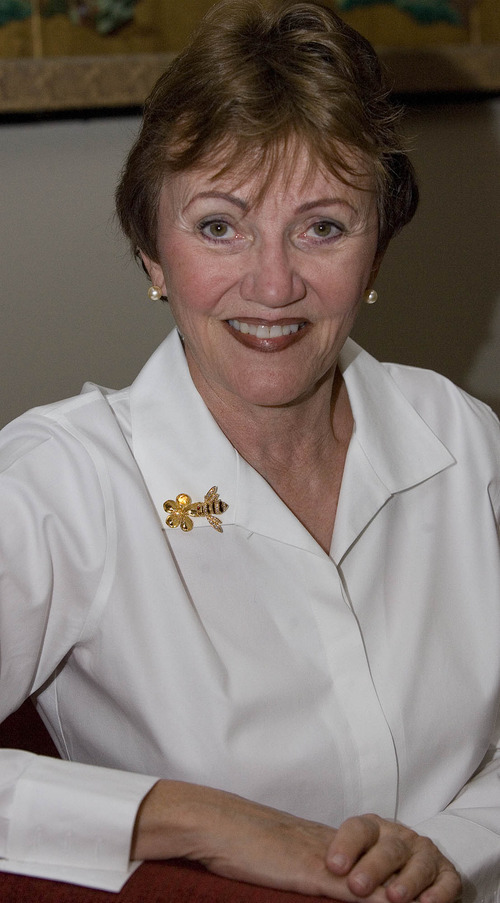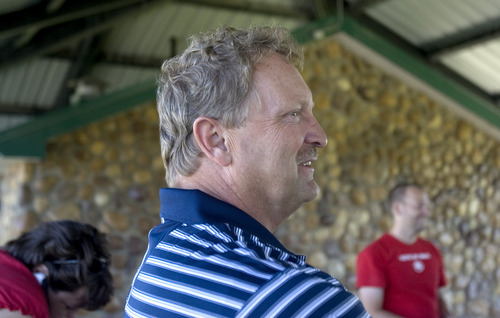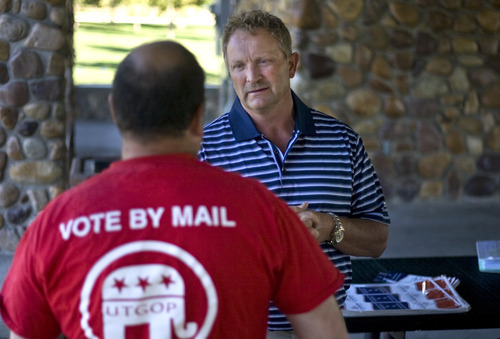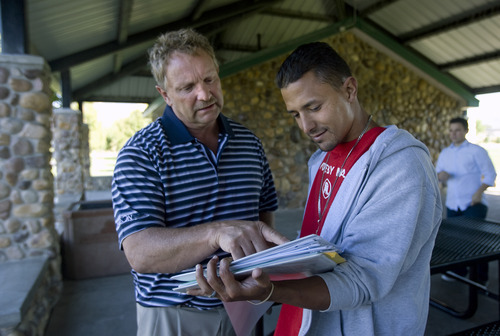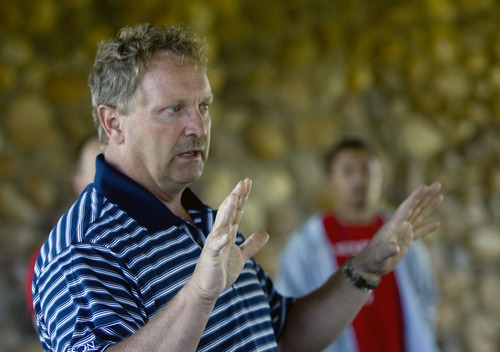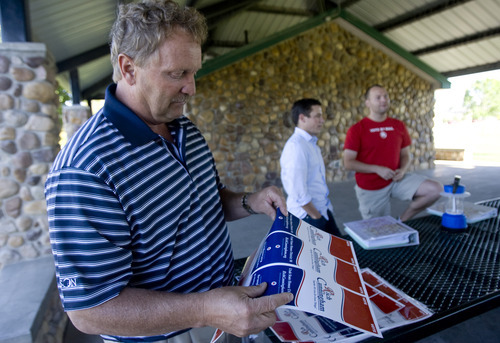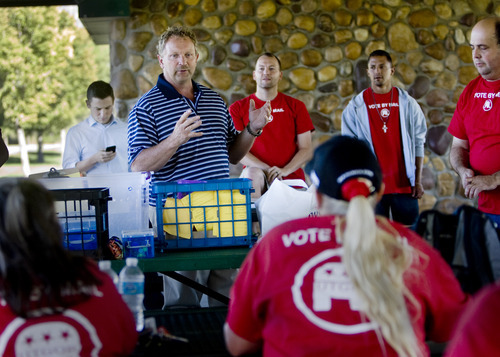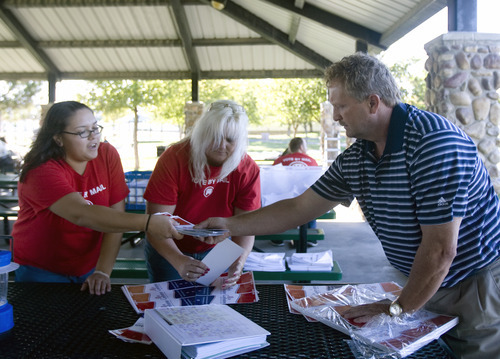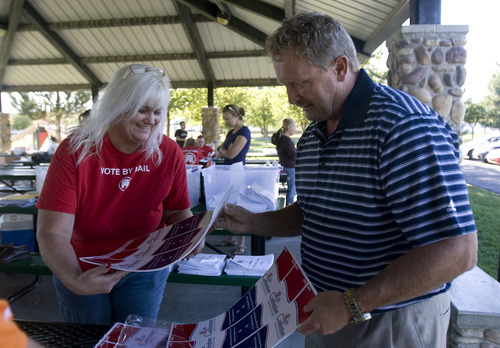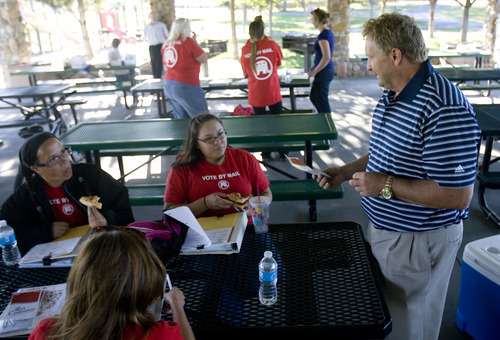This is an archived article that was published on sltrib.com in 2012, and information in the article may be outdated. It is provided only for personal research purposes and may not be reprinted.
As a young girl, Billie Gay Larson carried a shoebox full of her father's campaign flyers around her Magna neighborhood. He won and spent eight years in the Utah House of Representatives.
Now more than 60 years later, Larson is running for a House seat in South Jordan, but her childhood enthusiasm has been eroded by a lifetime of political activism.
She expects to lose.
"I don't have a campaign manager or office," Larson said. "When you're running for office as a Democrat in South Jordan, the chances of you winning would only be if everyone was really paying attention to your race."
And this year, most of the spotlight is shining on the presidential and congressional contests, not on the battle for state House District 50 between Larson and the person she expects to win: Republican Rich Cunningham.
An investment adviser relatively new to Utah's political scene, Cunningham claimed the Republican nomination at the Salt Lake County GOP Convention in April, besting Rep. Merlynn Newbold, a 12-year incumbent.
He's running on the dual platform of advocating for a smaller government while attending to the needs of the fast-growing area he hopes to represent. District 50 includes Daybreak, a burgeoning housing development, which has helped balloon the city's population by 24,000 people in the last decade.
Cunningham says dealing with the expansion is his top issue, and that starts with the children.
"We need 10 schools education-wise just to stay up with the growth," he said.
If elected, he also wants to encourage more community involvement, recalling a recent South Jordan School District meeting with only seven parents in attendance.
"The public just does not get involved, and that's a real challenge," he said. "We've got to get more people involved."
Cunningham's family has long been involved in education. His parents taught in the Carbon County School District. His grandmother was also a teacher. His wife currently teaches in the Murray School District.
Larson also listed education as a top issue and criticized the Legislature for using teachers and teachers' unions as "ripping posts," instead of focusing on improving the quality of schools. Most of what the Utah Legislature does irritates her. She says the Republican-dominated Legislature is "run by special interests."
"They don't have to compromise. They don't have to listen to anyone else. That's not legislating," she said, arguing that, as a result, major issues spanning from education to the needs of the poor are being neglected.
That's why she decided to run for office, even if she doubts her chances of winning in November.
"Every year, it gets worse. I just couldn't take it anymore," she said. "We need people who don't represent any special interest at all. People who don't represent business, real estate, don't represent unions, don't represent any one area. We need people who are independent. And I am independent."
Larson is retired, but spent years working in the federal government, including a stint as chief of staff for former Rep. Bill Orton, D-Utah, and most recently as a congressional liaison for the National Park Service during the Clinton administration. She is the current president of the Women's Democratic Club of Utah.
While she dismisses business experience, Cunningham touts his. He has spent 28 years working in the financial services field and is now employed by Transamerica Financial Advisors.
"I'm a businessman," he said. "I deal with the public on a daily basis. It's personal every day."
His interest in politics developed after he worked with mayors and city council members on issues involving youth sports leagues. From there, he ran for state Senate after Sen. Chris Buttars retired last year in the middle of his term. Cunningham lost to Aaron Osmond, who encouraged him to run in this race.
Larson and Cunningham have vastly different views of government, and different expectations come November, but they share an ethos when it comes to civic participation.
"If you know your rights and what's worth fighting for, get in the fight," Cunningham said. "If not, get out."


